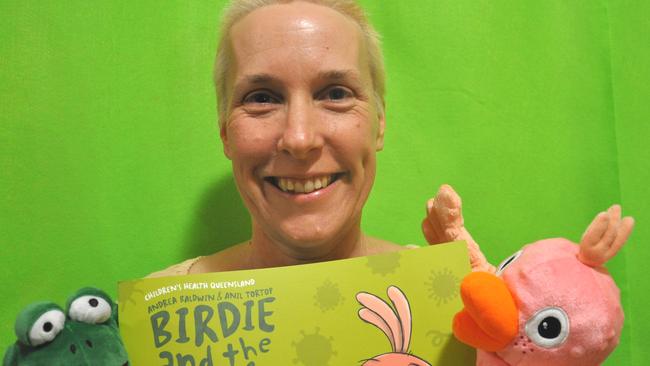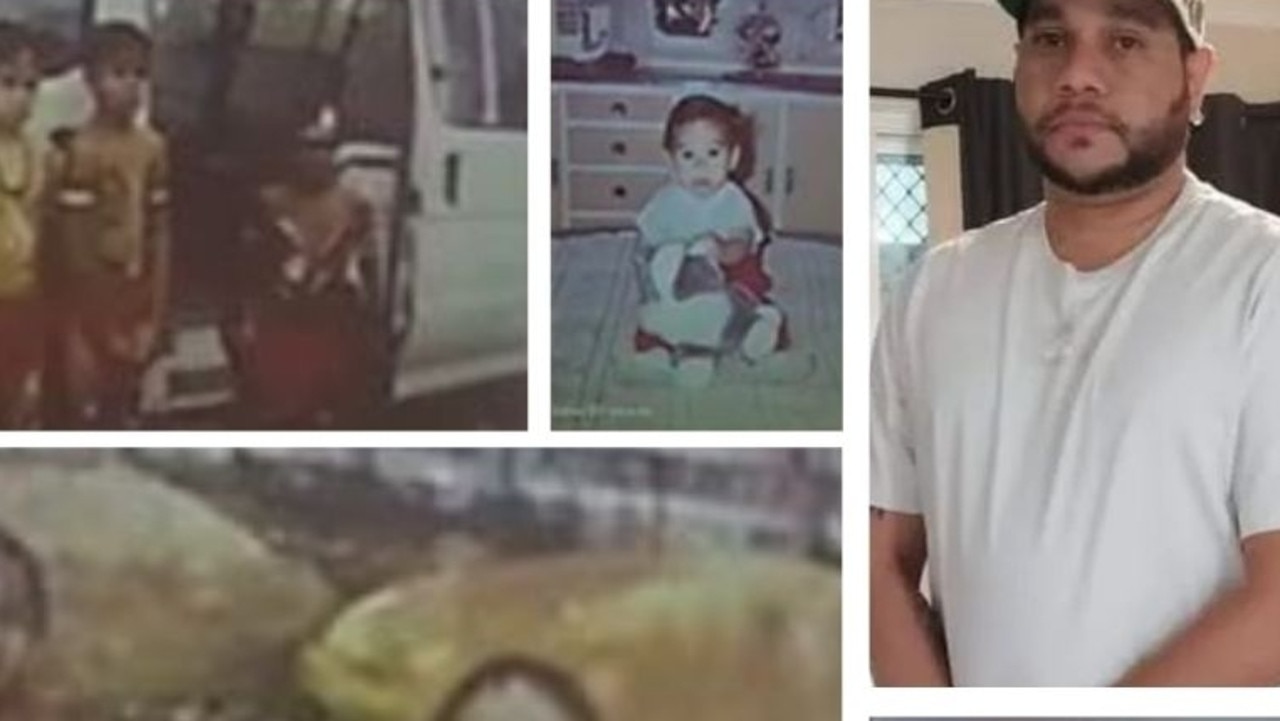Birdie books help our young with mental health
This fantastic resource helps children navigate the stress of natural disasters and pandemics.

Community News
Don't miss out on the headlines from Community News. Followed categories will be added to My News.
DISRUPTIVE or traumatic events weigh heavily on everyone but a special initiative hopes to assist young children who are unable to process unexpected change and emotions.
The Queensland Centre for Perinatal and Infant Mental Health helps to support the mental health and emotional wellbeing of expectant or new parents, babies and young children throughout the state.
After years of working together on the project, service development leader Andrea Baldwin and the team at QCPIMH came up with the concept of Birdie's Tree.
"(It) was the worst year on record, globally, for natural disasters and three-quarters of Queensland was declared disaster affected, between Cyclone Yasi, the flash-flooding in Grantham and extensive flooding throughout the state," Dr Baldwin said.
"At that time there wasn't a lot of research on how natural disasters affect babies and young children but the symptoms were in line with what we see when children experience particularly stressful events such as separation anxiety, rain phobia, regression (loss of previously acquired skills like toileting or language) and other emotional and behavioural disturbances."
Health clinicians at QCPIMH, which is part of Children's Health Queensland Hospital, found significant numbers of children aged zero to four were being referred for symptoms linked to anxiety and trauma, in response to the extreme weather.
Together, the team at QCPIMH developed newsletters and stories to assist children and their families work through these experiences and eventually were able to employ a project officer to draw together the literature to form Birdie's Tree in 2018.
Consisting of eight storybooks, a variety of online games and information, the Birdie's Tree collection is a helpful resource for parents, educators and children.
Designed to assist children and families before, during and after the event of a natural disaster, the resources aim to build resilience, talk about their feelings, practice what may occur during the event of a natural disaster or pandemic and recovery.
Dr Baldwin said small children needed to be able to feel the world was predictable and made sense, that one thing would happen after another and it wasn't chaos, which was why the recent pandemic might have caused anxiety for so many.
"In each Birdie story, Birdie and Mr Frog start out happy, then they go through something really distressing but helpers come, the world is restored to order and they're able to carry on with their lives," Dr Baldwin said.
"This gives them a sense of control over the book, which symbolises an event that seemed uncontrollable at the time. Playing the games also gives children experiences of success and mastery, that help to fend off the feeling of helplessness that can contribute to trauma."
Dr Baldwin, who has been a registered child and youth psychologist for 30 years, said young children needed adults to help them regulate their emotions, as they hadn't yet learnt how to and their brains were changing very rapidly.
"Children up to the age of three are forming more than a million new brain connections every second, so the way they see and understand a disruptive event is very much filtered through the developmental stage they're at, including their language skills," she said.
"Babies pick up the anxiety and stress of adults around them, especially their parents, even though they don't understand what's happening, (while) toddlers and preschoolers can be distressed by images on TV or the concern in an announcer's voice, even if they don't fully understand what they're seeing and hearing.
"Parents and other adults can help children process their feelings through play, drawing and talking and giving them simple information and reassurance, in language that suits their age, is really helpful."
Having grown up in Wide Bay, Dr Baldwin was no stranger to the region and said research actually showed that families in regional, rural and remote areas were more likely than their counterparts in cities to experience stressful events.
"While a high proportion of children get through challenging events just fine, the more stressful events they experience, the more likely they are to develop long-term problems," she said.
"Stressful events that happen while a child's brain is developing rapidly can affect those foundations - like an earthquake damaging the foundations of a house that's being built and shaky foundations can affect children's long-term cognitive, social and emotional health and development."
Dr Baldwin said the response of the books had been very positive, with many parents and educators using the Birdie books as an activity that helped children to work through their experiences with floods, fire, drought and COVID-19.
"One four-year-old girl in Townsville was able to accept the changes to her home, after the house had been damaged by flood and needed extensive renovations, by saying, 'Some of it's the same and some of it's different, just like Birdie's nest, and that's OK'," she said.
"We heard about a six-year-old girl whose parents are both emergency workers, who was really distressed when they went out to work in the floodwaters - she was terrified they wouldn't come back.
"Her mother read Birdie and the Flood with her and, in her mother's words, 'It turned her whole perspective around, because she felt she was going to be safe and her parents were going to be safe'."
Above all else, Dr Baldwin said it was important for parents to know that they didn't need to have all the answers to their children's questions.
She said children needed to feel safe, secure, respected and cared for and comfortable to speak openly to their parents about how they were feeling or what they were experiencing.
Print books can be ordered for a small cost or accessed for free online.
Visit childrens.health.qld.gov.au/natural-disaster-recovery and childrens.health.qld.gov.


